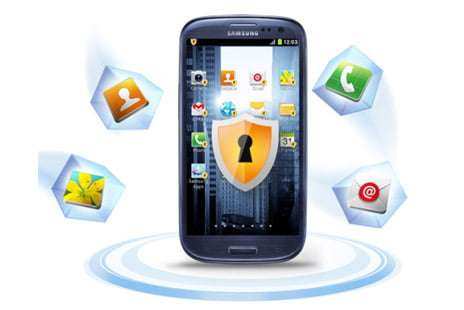When it comes to online security, most of us have a tendency to focus on the desktop, and roll the dice where our mobile devices are concerned. As tablets and smartphones continue to make their way into our personal lives and the workplace, it
’s going to become more important ever to see to certain security threats. These can include vulnerabilities in our hardware and software, or the inherent fallibility of the human element.
Malware
There was a time when malware seemed to be a problem exclusive to the desktop. Unfortunately, that time is over. Apple
’s handhelds are relatively better equipped to fend off malware, thanks to their more tightly controlled app ecosystem, but Android devices, which are, for better or worse, a lot more open, have well-publicized malware vulnerabilities thanks to thousands of shady apps, readily available to be installed on personal or company-owned devices.
That is, unless your company invests in some kind of management system for work devices. Things get a little more complicated when companies opt for the BYOD (bring your own device) approach, but it
’s both understandable and expected that companies manage employees’ work devices, thereby restricting the apps that can be installed, and halting malware in its tracks.
Password Laziness
Whether it
’s because employee-owned devices are part of a workplace cloud-based phone system or because smartphones are a convenient way to transport work documents between the home and the office, employees in almost every industry are using mobile devices at work, and introducing a world of potential security problems thanks to a lack of judgement where passwords are concerned.
Even if your IT department doesn
’t want to invest in management software for employee devices, it’s recommended that you at least educate employees about proper password usage. Some employees don’t password protect their devices at all, which puts sensitive company information at risk. An even better solution is two-factor authentication, which uses both a password and a PIN.
Unencrypted Wireless Internet
Mobile devices have made it possible to do our work from just about anywhere, whether that means we have a home office or we stake out the local coffee shop to get some work done from time to time. Unfortunately, public wi-fi, and even some home networks, offer little in the way of encryption.
If you want to be 100% certain that nobody can snoop on your Internet travels, and by extension your company
’s trade secrets, it may be time to invest in a VPN (virtual private network). Now that mobile devices and personal computers have become integral to our professional lives, and even extensions of company-owned business phone systems, it’s more important than ever to keep ourselves protected.
Out-of-Date Software
In certain circumstances, a company will choose to restrict desktop and mobile operating systems to a previous build that they know is
“stable” and works with their security and management software. However, if employees are free to use their own devices without managerial oversight, it’s encouraged that they stay on top of updates to their apps and operating systems.
Older, out-of-date software and apps can have unsolved security vulnerabilities that newer builds have successfully addressed. Constant updates may start to feel like harassment after a while, but they
’re important for not only device security, but also for our peace of mind.



